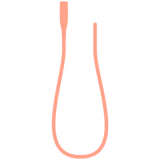
What We’ve Learned About Long COVID, How It Starts and Latest Research
Posted by Pankaj Dhiman on Nov 2nd 2023
Long COVID in 2023: What we know, what to do, and the latest research
Long COVID, also known as post-COVID conditions, is a wide range of new, returning, or ongoing health problems that people experience after being infected with the virus that causes COVID-19. Symptoms can vary from person to person and can last for weeks, months, or even years.
How does long COVID start?
The exact mechanism of how long COVID starts is still being investigated, but scientists believe that it may be caused by a combination of factors, including:
- Persistent inflammation: The COVID-19 virus can cause inflammation throughout the body, which can damage cells and tissues. This inflammation may persist in some people even after the virus has cleared, leading to long COVID symptoms.
- Autoimmune response: The COVID-19 virus can also trigger an autoimmune response, in which the body's immune system attacks its own healthy cells and tissues. This can also lead to a variety of long COVID symptoms.
- Organ damage: Some people with COVID-19 experience damage to organs such as the lungs, heart, brain, and kidneys. This damage can cause long COVID symptoms such as shortness of breath, chest pain, brain fog, and kidney problems.
- Viral persistence: Some scientists believe that the COVID-19 virus may persist in certain parts of the body, even after the person has recovered from the initial infection. This persistent virus may contribute to long COVID symptoms.
Buy Now - On/Go 10-minute COVID-19 Antigen Self-Test (OTC)
Who is most at risk for long COVID?
Anyone who has been infected with the COVID-19 virus can develop long COVID, regardless of the severity of their initial infection. However, certain groups of people seem to be at higher risk, including:
- People who had severe COVID-19 illness
- People who were hospitalized or in the ICU because of COVID-19
- Older adults
- People with multiple medical problems
- Women
- People who belong to the transgender community
Buy Now - CareStart Rapid Antigen Test
What are the symptoms of long COVID?
The symptoms of long COVID can vary widely from person to person. Some of the most common symptoms include:
- Fatigue
- Shortness of breath
- Chest pain
- Brain fog
- Difficulty concentrating
- Headache
- Muscle pain
- Joint pain
- Sleep problems
- Anxiety and depression
- Loss of taste and smell
- Dizziness
- Heart palpitations
- Rashes
- Hair loss
- Menstrual cycle changes
Is there a treatment for long COVID?
There is currently no cure for long COVID, but there are a number of treatments that can help to manage symptoms. These treatments may include:
- Medications: There are a number of medications that can be used to treat specific long COVID symptoms, such as fatigue, shortness of breath, and chest pain.
- Physical therapy: Physical therapy can help to improve strength, endurance, and function in people with long COVID.
- Occupational therapy: Occupational therapy can help people with long COVID to learn how to manage their symptoms and perform everyday activities.
- Mental health support: Mental health support can be helpful for people with long COVID who are struggling with anxiety, depression, or other mental health problems.
Buy Now - iHealth COVID-19 Antigen Rapid Test (OTC)
What is the prognosis for people with long COVID?
The prognosis for people with long COVID is still unclear. Some people recover completely within a few months, while others experience symptoms for many months or years. There is no way to predict how long a person will experience long COVID symptoms.
What can I do to reduce my risk of long COVID?
The best way to reduce your risk of long COVID is to get vaccinated against COVID-19. Vaccination is the most effective way to protect yourself from serious illness, hospitalization, and death from COVID-19. It is also important to continue to follow public health guidelines, such as wearing a mask and social distancing, to reduce your risk of exposure to the COVID-19 virus.
What are the latest research findings on long COVID?
The latest research findings on long COVID suggest that it is more common than previously thought. A large study published in August 2023 found that nearly 50% of people who had COVID-19 reported at least one long-term symptom, even if they had mild or asymptomatic initial illness.
Scientists are still working to understand the underlying causes of long COVID, but there are several theories. One theory is that the SARS-CoV-2 virus can damage tissues and organs throughout the body, leading to long-term health problems. Another theory is that the virus can trigger an overactive immune response, which can also cause damage to tissues and organs.
There is no one-size-fits-all treatment for long COVID, but there are a number of things that can be done to manage symptoms. These include:
- Getting plenty of rest
- Eating a healthy diet
- Exercising regularly
- Managing stress
- Taking over-the-counter medications for pain and inflammation
- Seeing a doctor for specialized treatment, if needed
Researchers are also working to develop new treatments for long COVID. A number of clinical trials are currently underway testing different medications and therapies.
Here are some of the latest research findings on long COVID, published in 2023:
- A study published in the journal Nature Medicine found that people with long COVID have persistent inflammation in the blood and tissues. This inflammation may be contributing to the various symptoms of long COVID.
- A study published in the journal Science Translational Medicine found that people with long COVID have abnormalities in their immune systems. These abnormalities may be making it difficult for their bodies to fully recover from COVID-19 infection.
- A study published in the journal Cell* found that the SARS-CoV-2 virus can infect and damage cells in the brain. This damage may be contributing to the cognitive problems that are common in long COVID.
Overall, the research on long COVID is still in its early stages, but scientists are making progress in understanding the causes and developing treatments.
Conclusion
Long COVID is a complex and debilitating condition that can affect people of all ages and severity of initial infection. While we don’t fully understand the causes or mechanisms of long COVID, scientists have made significant progress in recent research. There is currently no cure for long COVID, but there are a number of treatments that can help to manage symptoms. If you are experiencing long COVID symptoms, it is important to talk to your doctor.





























































